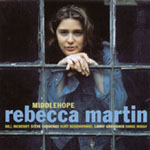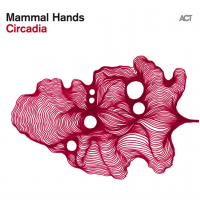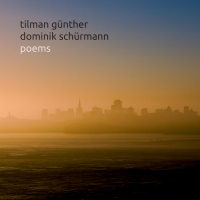Home » Jazz Articles » Album Review » Jon Jang: Tiananmen!
Jon Jang: Tiananmen!
This is an eleven piece orchestra with members from various ethnic backgrounds. The instrumentation is mostly western with three of the musicians using oriental instruments. The entire recording is an extended composition based on the experiences of the composer to the demonstrations of the Beijing protesters and their unfortunate demise. The result is an accurate and powerful portrayal of the cry for freedom and weary wail of the oppressed and the questioning heartbreak of the overlooker.
Although Jang uses Sun Ra's distinctive term of Arkestra, the music may be closer to Ellington's suites or more so Mingus' large band experiments. As do both of his predecessors, Jang merges much of the jazz tradition into his composition, employing elements of swing, bebop and collective improvisation. And of course there is the Asian influence but also can be heard influences from other cultures. Again, like his predecessors, he fuses these elements together with delicate beauty and deft craftsmanship powerfully portraying the deep emotional content of the music.
However, the Asian influence in this music is much more prevalent and authentic. Oriental and jazz elements are given a dynamic interplay to an unprecedented effect. We hear oriental pentatonic folk melodies played with a western intonation in a sectional manner as in "Great Wall/Gold Mountain." Or James Newton on flute being backed by Zhang Yan's guzheng (a Chinese zither) on "I Feel the Thunder in My Heart." Again there are passages where the western and oriental instruments are playing in "unison," however each employing their own intonation. And the suona (a double-reed instrument) is given full jazz extemporization by Liu Qi-Chao in a very evocative free jazz style.
I also must mention the fanfare in the middle of the composition "Come Sunday, June 4 1989." It is a full ensemble reading of a majestic theme reminiscent of Chinese orchestra but with the addition of the low horns and bass the power of the combined timbres is truely stunning.
It is also important to note the political and social aspect of Jang's work, as that is more prevalent to the use of the name Arkestra. Jang is very concerned with human rights issues and social injustice. The "ark" in Arkestra means a vessel to preserve and protect. And although musically it may not be accessible to the majority, Jang strives to make this a music for the people.
Time will surely prove this great recording to be a classic. It follows in the tradition of jazz as a forward moving and passionate music. It reasserts that jazz is a music that has been molded from many influences. And it brings forth once again the emotive power of jazz as a cry from the soul.
Track Listing
1. Introduction 2. Tears from the Heavenly Gate 3. Great Wall/Gold Mountain 4. I Feel the Thunder in My Heart 5. Come Sunday, June 4 1989 6. Fifth Modernization 7. Butterfly
Personnel
Jon Jang
pianoLiu Qi-Choa - Suona, Erhu, Sheng, Vocals; Zhang Yan - Guzheng; James Newton - Flute; Anthony Brown - Drums, Percussion; Melecio Magdaluyo - Alto and Soprano Sax, Flute; Francis Wong - Tenor Sax, Flute; Jim Norton - Clarinet, Bass Clarinet, Flute; John Worley, Jr - Trumpet, Fluegelhorn; Jeff Cressman - Trombone.
Album information
Title: Tiananmen! | Year Released: 2002 | Record Label: Soul Note
Tags
PREVIOUS / NEXT
Support All About Jazz
 All About Jazz has been a pillar of jazz since 1995, championing it as an art form and, more importantly, supporting the musicians who make it. Our enduring commitment has made "AAJ" one of the most culturally important websites of its kind, read by hundreds of thousands of fans, musicians and industry figures every month.
All About Jazz has been a pillar of jazz since 1995, championing it as an art form and, more importantly, supporting the musicians who make it. Our enduring commitment has made "AAJ" one of the most culturally important websites of its kind, read by hundreds of thousands of fans, musicians and industry figures every month.




















